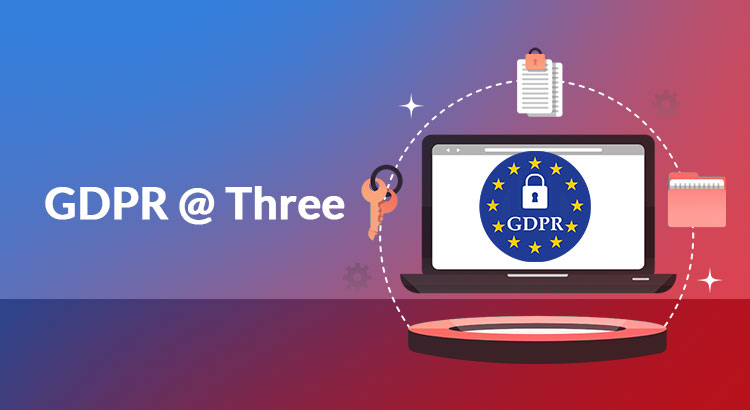GDPR Completes its Third Anniversary
On 25th May, 2018, the European Union adopted the General Data Protection Regulation (GDPR), one of the most comprehensive compliance recommendations on data protection.
As the wave of digitization swept across the world, organizations and regulatory authorities felt the dire need to protect personal identifiable information (PII) and confidential business information.
It was felt that data processors and data controllers must centralize their focus more on secured access management in an IT environment. GDPR helped the organizations to mandatorily ensure adequate and relevant IT security policies and mechanisms.
GDPR: What is it?
GDPR compliance is strictly applicable to all EU-based organizations that generate, store and process personal information of EU citizens like names, addresses, email Ids, personal security numbers etc. The GDPR ensures secure processing of the confidential information of EU citizens with their consent.
Even non-EU organizations that process and stores data of EU residents have to comply with the mandates given by GDPR.
In order to implement GDPR successfully, a data controller and data processor play a key role in maintaining adequate information security controls. Moreover, it is highly crucial for third parties like Managed Service Providers (MSP) and Cloud Service Providers to comply with the regulations.
Watch this video to learn how organizations can ensure essential IT security requirements for robust IT security posture.
Fundamentally speaking, every aspect of our lives revolve around data. Starting from personal records, to social media footprint and from finances to government records and retailers – everywhere we are bound by our digital identities.
At the same time, analyzing from a business perspective, every organization strives to maintain data security, data integrity and data privacy every day. By following the terms of GDPR, organizations could ensure that their confidential data assets are gathered legally and bound by the strict IT security policies.
GDPR Violations and Penalties
Till date, numerous organizations have been fined millions of euros for GDPR violations. An international airliner, a global hospitality chain, the world’s search engine giant, telecommunications giant, a global lifestyle chain… To name a few, have been penalized for violating GDPR.
The cost is huge for failing to comply with the GDPR. Organizations can be fined up to 4% of annual global turnover or €20 million (whichever is higher) in case of non-compliance with the regulation.
To avoid these hefty non-compliance penalties of GDPR, Privileged Access Management (PAM) definitely plays a crucial role. ARCON | PAM offers a unified policy engine to ensure that anyone accessing the database from anywhere in the world is authenticated and authorized. Not only that, rule and role-based granular level access control ensures security at all levels in the network periphery. This is what GDPR seeks from all the organizations.
Are we doing enough to stay GDPR compliant?
This is a million-dollar question. Effective compliance largely depends on the enterprise data security policies and data security preparedness. The mandates of GDPR clearly mention that it expects organizations to reinforce robust IT security frameworks in every layer of the IT ecosystem. Accumulation, storage and transfer of every data needs to be identified, recorded and the risk areas should be detected and mitigated. However, the question is, which security measures are we taking to stay GDPR compliant?
Per our research, the latest (May 2021) below statistics shows a different picture though.
- GDPR fines have risen by nearly 40% recently.
- Total penalties under the GDPR totaled $191.5 M.
- The authorities of GDPR recorded 19% more data breach incidents in the last 1 year
GDPR Compliance and the role of ARCON Privileged Access Management
Deploying ARCON Privileged Access Management is the easy, convenient and transparent way to ensure GDPR compliance. The solution answers the below questions in affirmatives:
- Does it maintain data privacy and security of all the data logs? Is this data encrypted?
- Is there any mechanism to notify the authorities about any data breach incident within 72 hours?
- Do the privileged identities face authorized access only?
- Is the principle of least privilege applicable?
- Is there any granular level access control over the end-users?
- Are there any secured third-party (MSP & IaaS service provider) access to the IT systems?
- Is there any continuous monitoring of every activity around critical applications?
- Are there any real-time threat analytics capabilities?
- Is it capturing logs of every critical session for audit trails and identifying anomalies?
- Is there any centralized policy engine to authenticate end-users before granting access to critical systems/ applications?
Conclusion
In a nutshell, Privileged Access Management can “Kill two birds with one stone”! In the digital age, every organization has a commitment to strengthen data protection mechanisms. ARCON | PAM is a highly effective solution to ensure ‘secure IT environment’, while it also paves the way for meeting compliance requirements. What could be a better way to stay resilient to modern cyber threats and at the same time compliant to the global regulatory standards like GDPR?

